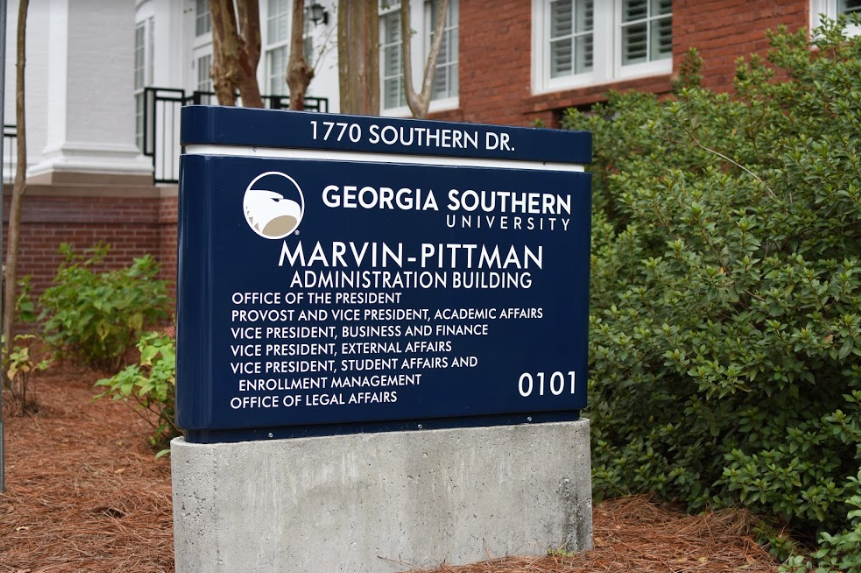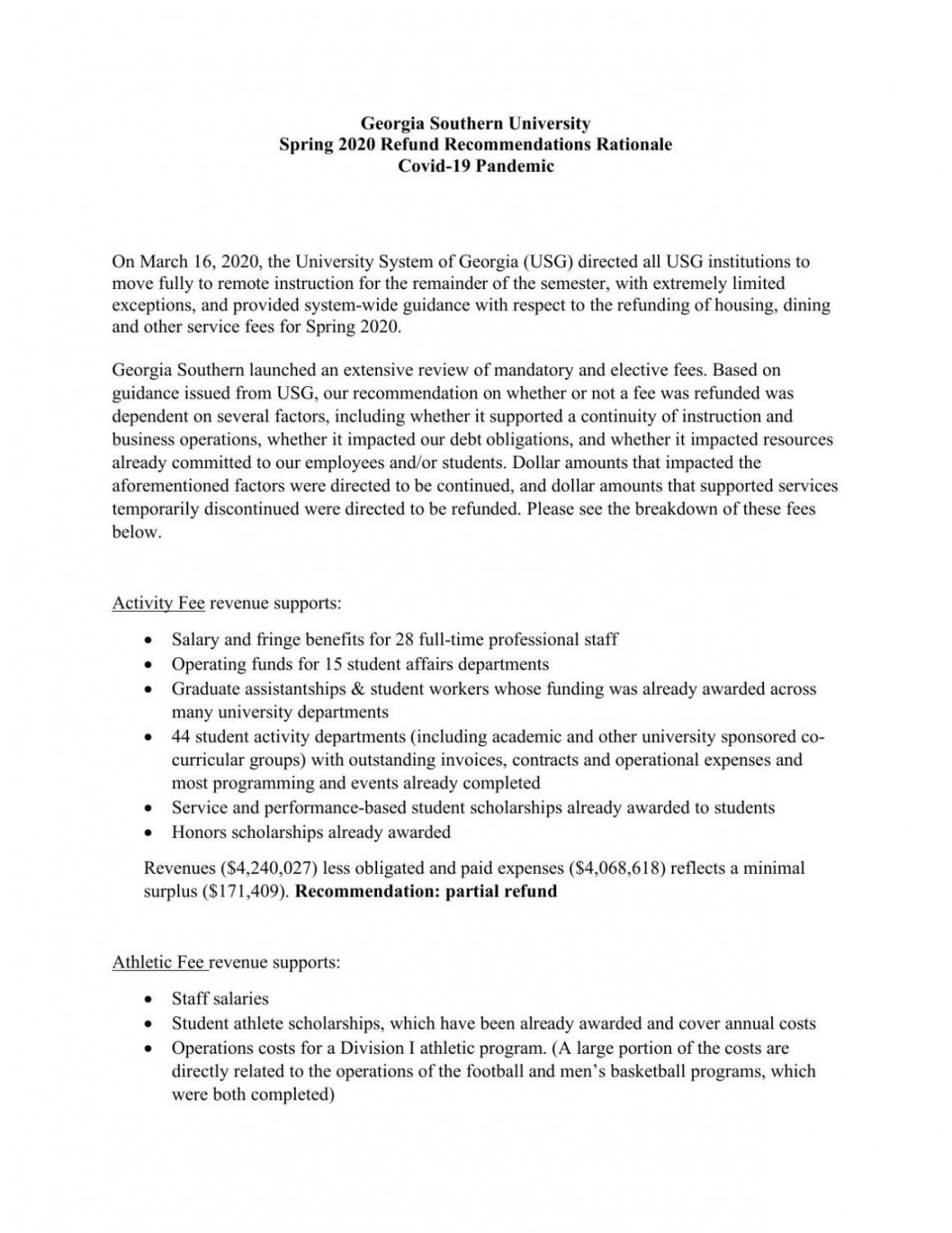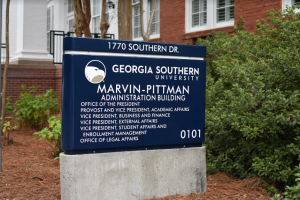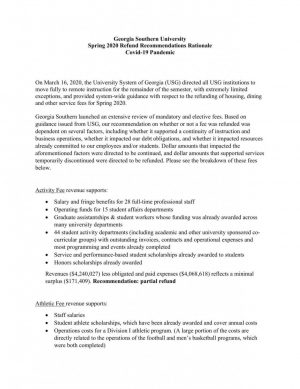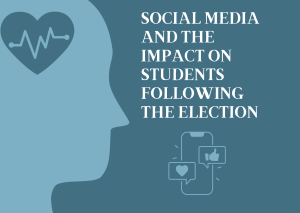What the COVID-19 outbreak means for Georgia Southern’s financial wellness
May 22, 2020
STATESBORO — Since the outbreak of COVID-19, individuals, businesses, governments and government agencies (including Georgia Southern) have been hit hard financially. GS, however, has a plan.
Refunds
When the University System of Georgia (USG) announced that their institutions would be transitioning to online learning, they also provided guidance on issuing refunds to students.
GS officials took that guidance and created their own plan. The finalized rationale includes every mandatory and elective fee, its revenue, its costs and a recommendation on whether or not the entire, part of or none of the fee would be refunded.
The recommendation to refund all, part or none of each fee was based on three factors: 1) whether it supported a continuity of instruction and business operations, 2) whether it impacted our debt obligations and 3) whether it impacted resources already committed to our employees and/or students.
Of the 13 fees listed, only four fees were partial or fully refunded.
“Where we had deltas that were positive and there was extra revenue, we said, ‘Let’s give a refund back to students where we can,'” said Robert Whitaker, vice president of business and finance.
The full refund rationale document can be found below.
Federal CARES Act funding
The next move GS made was distributing the $22,748,221 from the federal
government through the CARES Act. The federal government required half that amount to go directly to students.
According to Whitaker, every Title IV-eligible student received $360. Undergraduates with a smaller expected family income received more money initially.
Students with emergency financial needs were then encouraged to apply for additional CARES money for college-related expenses. Whitaker said 2,200 students applied for this additional aid.
“There’s a group going through all of those applications right now,” said Whitaker. “That bit of money should be passed out hopefully within the next week.”
More information on the additional CARES emergency funding can be found in this earlier George-Anne article, published on May 12.
Additional CARES money was made available to students taking courses during the summer.
State-mandated 14% budget cuts
On May 1, Kemp mandated that all state agencies, including the USG, had to cut their budgets by 14%. This was a proactive move for the estimated loss in state tax income.
GS officials developed three principles to help guide them in the budget reduction process: 1) prioritize instruction, 2) prioritize student services, support and success and 3) ensure operational sustainability and effectiveness.
Four reduction strategies were then created. What is absolutely essential to continue to be operational? What vacant positions can be frozen or eliminated? What administrative fees can be aligned with auxiliary services (which is exempted from the 14% cuts)? How do we implement the USG-mandated furloughs?
“People are very important to [GS President Kyle Marrero], this university, his senior staff,” said Whitaker. “Our goal was to not have to lay anybody off with process.”
While the plan is not yet final, Whitaker said that as of now, no full-time benefitted staff have been laid off.
What does this plan mean for student employees? The budget plan, right now, does identify a cut in student labor.
If a department eliminated one or more student positions, the department may have employed a student who has since graduated. In that case, the department won’t hire a new student.
If a department has a returning student employee, but no budget to support him or her, they will still have a job somewhere on campus.
“When [a student no longer has their previous position], we are going to hand walk that student to HR to find them an opportunity somewhere on campus,” said Whitaker. “There’s still enough jobs on campus.”
Nothing is concrete… yet
Whitaker emphasized that this plan is merely a target. The Georgia Legislature still has to allocate funds for the 2021 fiscal year. When that happens, GS officials may have to make more cuts or be able to return some funding.
As of now, the Legislature is slated to meet in June.
“Times like these is when you really have to lean in and press against your core values,” said Whitaker. “Everything we’re doing is with that lens. The hope is that we can get through this… and protect our people.”
Andy Cole, Managing Editor for News Coverage, bc14713@georgiasouthern.edu


